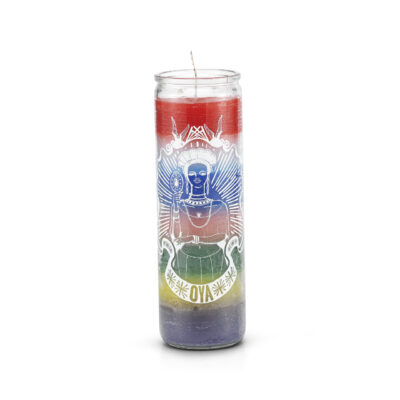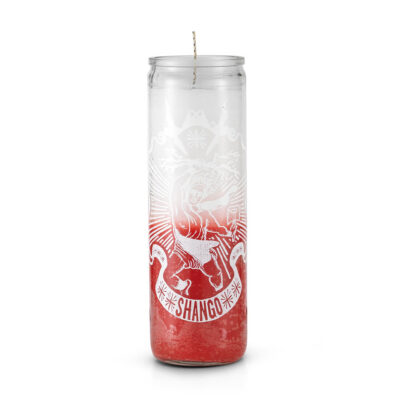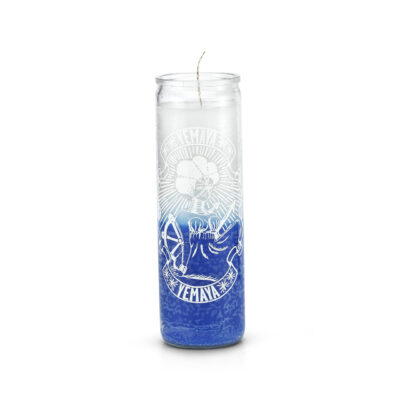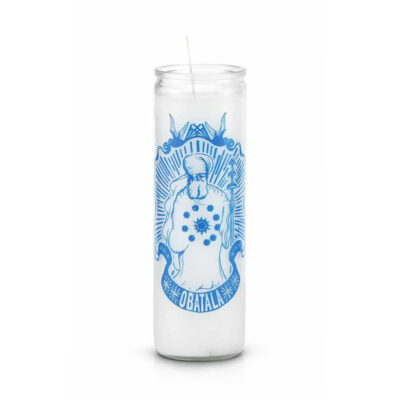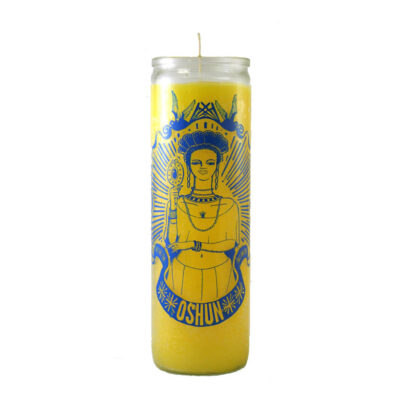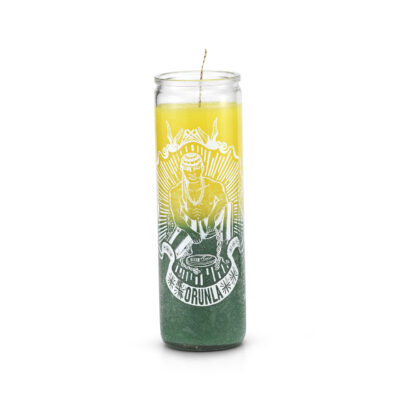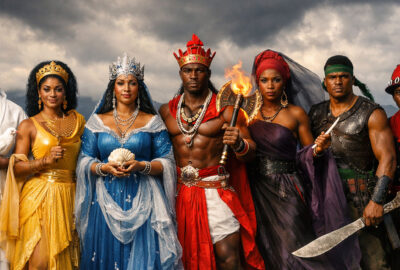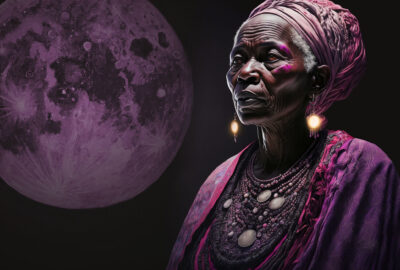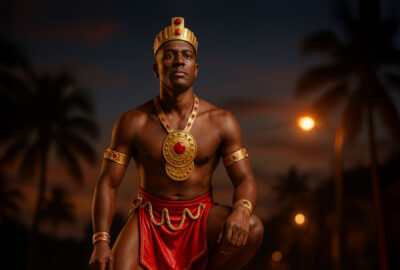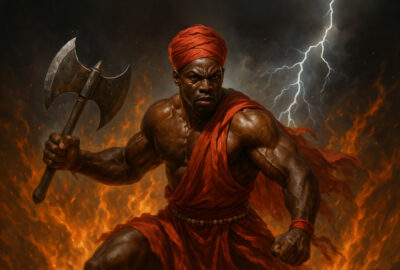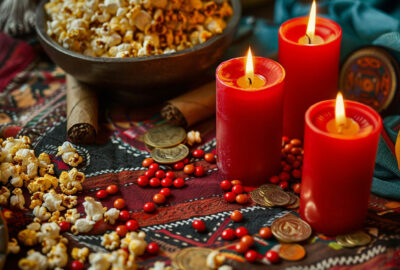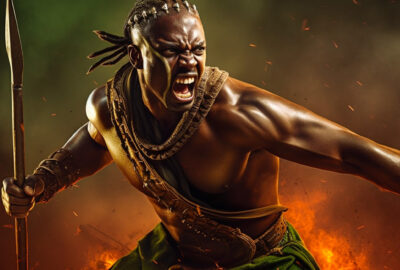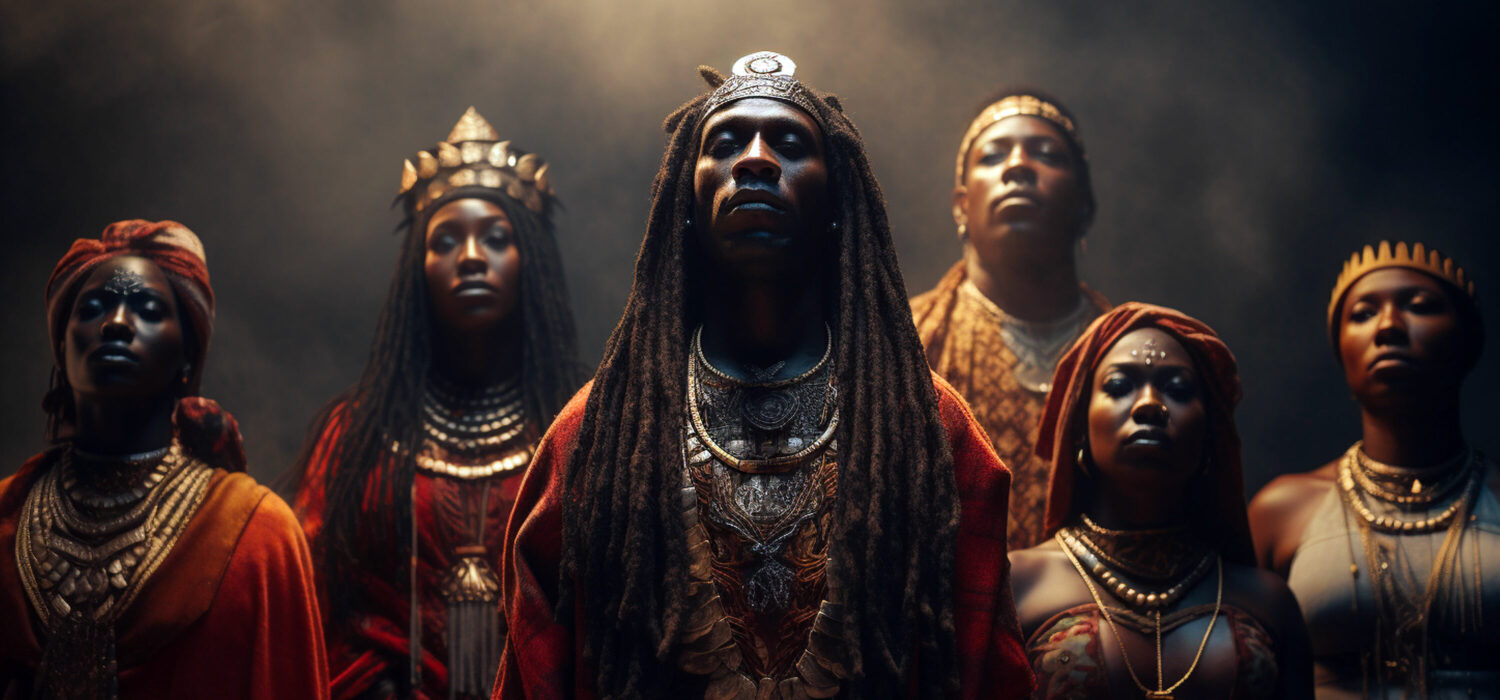
A Complete List of Orishas and Yoruba Deities
In the rich landscapes of the Yoruba religion and Santeria, practitioners find guidance, wisdom, and connection through their engagement with the Orishas, divine entities embodying various aspects of the natural and spiritual worlds. These individuals forge deep, personal bonds with the Orishas, cultivating a spiritual practice that is both profound and dynamic. The list of Orishas plays a crucial role in this engagement, offering a framework through which practitioners can understand and interact with these divine forces.
How Many Orishas Are There?
In the Yoruba religion, which is full of rich stories and diverse beliefs, there isn't a fixed number in the list of Orishas, who are powerful gods overseeing different parts of the world and human life. A common belief is that there are "400 + 1" Orishas, a special number that suggests something sacred and meaningful in the list of Orishas. This belief hints at the endless and mysterious nature of these gods.
Moreover, there are different opinions suggesting that the number of Orishas on the list can't be counted, summarized by the saying "as many as you can think of, plus one more." This saying highlights the countless traits of the Orishas and gives an idea of a constantly growing and unimaginable world of the divine that keeps revealing new aspects, similar to the endless domains they control, as represented in the list of Orishas.
Also, different stories and academic talks suggest varying numbers of Orishas, anywhere from 400 to an impressive 1,440 in the list of Orishas. These differing numbers could show the large and complicated world of Yoruba beliefs, with each number maybe showing different viewpoints or local differences in the tradition. Some stories even point to 700 as an important number on the list of Orishas, indicating a big group of gods that look after many different things and events in the universe.
The following list outlines most of the Orishas that are commonly revered within both the Yoruba religion as well as other West African religions including Santeria. This list of Orishas includes the primary Orishas known as the Seven African Powers as well as some of the less commonly known Orishas, showcasing the diversity and depth of the spiritual tradition.
Abata
is a powerful Orisha connected to the wetlands and the balance between land and water. She is often invoked for healing, fertility, and restoration, especially when the environment or the body needs to be brought back into harmony. Abata is a guardian of thresholds—places where change happens—making her a powerful ally during transitions. Her offerings include herbs, water, earth, and foods connected to the swamp. She reminds us that healing is a natural process, rooted in stillness, reflection, and a return to what nourishes the soul.
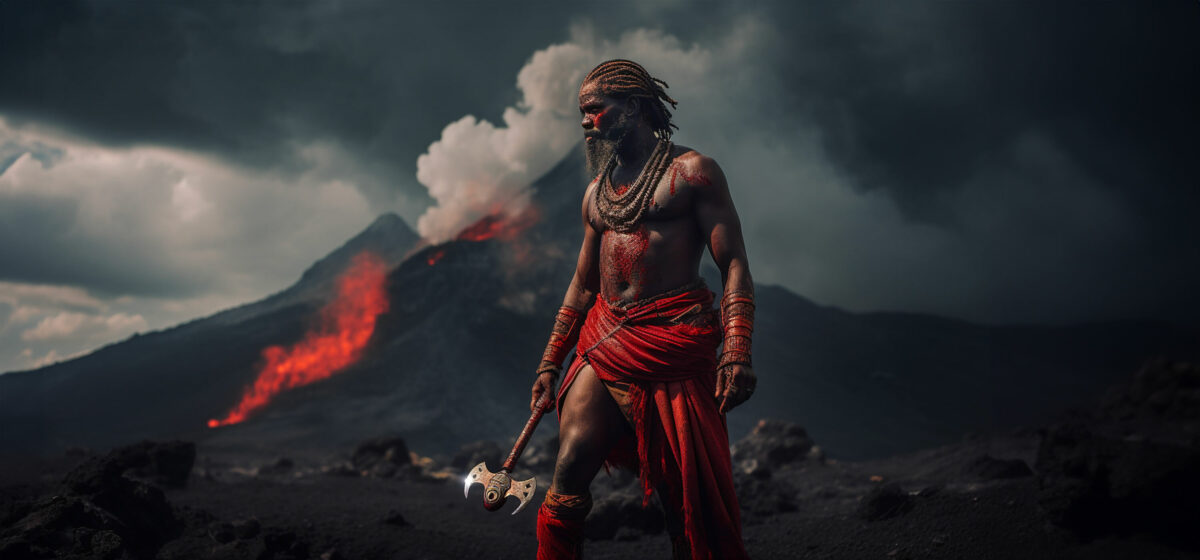
Aganjú symbolizes the raw, untamed power of the earth.
Aganjú
Aganjú is an orisha associated with the forces of nature, specifically volcanoes, the wilderness, and rivers. Revered in the Yoruba religion and its diasporic traditions like Santería and Candomblé, he symbolizes the raw, untamed power of the earth, offering strength, endurance, and transformative energies to his devotees.
Aja
Aja is an orisha associated with the forest and herbal healing in the Yoruba tradition. Often revered as a patron of herbalists and traditional healers, Aja holds deep knowledge of the secrets of the forest and the medicinal properties of plants. In some traditions, Aja may also be invoked for divination and guidance.
Ajala
Orisha of creation and sculptor of human bodies. Ajala is also known as Ajala Mo Orun or Ajala Mopin, which translates to "Ajala the molder of the spirit" or "Ajala who molds clay." In Yoruba cosmology, Ajala is often associated with creating and molding the physical bodies that humans inhabit on Earth, while Olodumare breathes life into them. Ajala's workshop is believed to be in Orun (heaven), and he molds the physical form, determining the fate, challenges, and blessings each person will face in life.
Aje
Often considered a feminine deity, Aje embodies the natural and spiritual force that governs the flow of wealth and material prosperity in the world. She is worshipped with the hope of gaining financial stability and abundance and facilitating the ethical flow of wealth within a community. Devotees may offer rituals, ceremonies, and symbolic offerings to Aje, seeking her blessings and guidance in financial matters and fostering economic growth and success in their personal and community lives. The worship of Aje underscores the understanding in the Yoruba spiritual system that economic well-being is an integral part of a balanced and harmonious life.
Ajé Shaluga
Ajé Shaluga is an Orisha of wealth, generosity, and unexpected blessings. He governs the ethical flow of money and is known for rewarding kindness and devotion with financial gain. Though often associated with Oshun, Ajé Shaluga stands as a distinct spirit of prosperity, frequently petitioned by those seeking stable income or material support. Offerings typically include coins, honey, and sweet treats.
Aroni
Aroni is a mysterious forest Orisha closely linked with Ossain. He is a keeper of secret knowledge and herbal wisdom, guiding those who seek mastery in healing and spiritual discipline. Aroni is said to walk with a limp and appear unexpectedly to those chosen to receive sacred teachings. He is respected for his silence, spiritual depth, and connection to the deeper mysteries of nature.
Ayao
Ayao is an orisha primarily associated with the winds that come from the northeast. She is often considered the sister of Oya, the orisha of winds and tempests, and, like Oya, Ayao is believed to have powers over the dead. Her name can be translated to mean "she who floats in the air" or "bird," hinting at her ethereal nature and dominion over the skies.
Ayé
Aye is the Orisha of wealth, worldly power, and material success. She governs earthly abundance and the resources that sustain life—money, trade, agriculture, and community growth. Aye is not simply about riches but about stability, opportunity, and the sacred duty to use wealth wisely. She teaches that prosperity is meant to be shared and protected, not hoarded. Offerings to Aye often include coins, grains, palm oil, and market goods. Her presence brings grounded energy, reminding us that the material world is sacred and must be honored with integrity.
Ayelala
Ayelala is a powerful Orisha of divine justice, truth, and oaths, especially honored in the Yoruba-Benin region. She is called upon to expose lies, punish wrongdoers, and uphold moral order. Her energy is fierce and exacting, making her a strong protector for those who have been wronged. Rituals to Ayelala often involve offerings of white cloth, water, and symbolic items related to truth and law.
Babalú-Ayé
Babalú-Ayé, often referred to as the "Lord of the Earth," is revered as the deity of healing, infectious diseases, and epidemics. Symbolizing both the infliction and alleviation of disease, he embodies the duality of sickness and health. Babalú-Ayé's name can be translated as "Father, Lord of the World." He is often associated with the afflictions of smallpox, leprosy, and other illnesses, but equally with their cures, making him a figure of respect and fear. In various traditions and regions, he is also known as "Omolu," "Obaluaye," "Sonponno," or "Shanpana," and these names might have subtle differences in meanings or attributes attached to them.
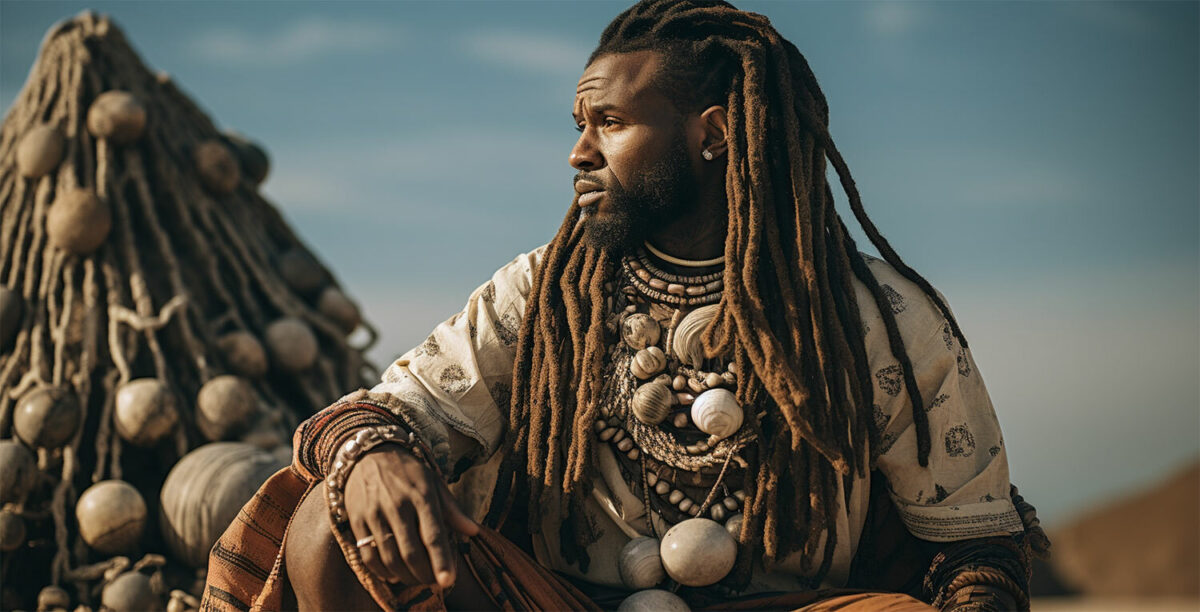
Dada is an Orisha known for being the guardian of children, particularly newborns.
Dada
Dada is an Orisha known for being the guardian of children, particularly newborns. Born with naturally locked hair, Dada is often symbolized and represented by the unique and sacred hairstyle known as "Dada" locks, which are considered a blessing and sign of special spiritual significance in the Yoruba culture. The Orisha is celebrated for protection, especially during the vulnerable early days of a child's life. As with many Orishas, the worship and veneration of Dada may vary across regions and among Yoruba diaspora communities. However, the core essence of Dada remains consistent: a guardian force for the youngest and most vulnerable.
Elegua
Elegua, also known as Eleggua or Esu, is the guardian of crossroads, doorways, and gates, serving as the messenger between the human world and the divine. His pervasive influence means that he must be invoked at the start of any ritual or ceremony to ensure that the communication pathways to other orishas are open. With a dual nature, Elegua embodies both chaos and harmony, bringing about obstacles as well as solutions. As such, he plays a fundamental role in one's life journey, highlighting the importance of choices and chances. In some traditions, he's also associated with Saint Anthony, further highlighting his role in opening and closing pathways in one's life.
Esu
Esu is a powerful, often misunderstood Orisha who serves as the divine messenger between the heavens and Earth. As the keeper of ashe—the spiritual energy that makes things happen—he ensures that all rituals and offerings reach their intended Orisha. Esu is a master of duality, both trickster and guardian of truth, teaching through challenge and paradox. Sometimes seen as distinct from Elegua, though often blended in diasporic traditions, Esu governs crossroads, balance, and divine justice. No spiritual work can proceed without first honoring him. His symbols include cowrie shells, keys, and a staff, and he is offered candies, rum, smoked fish, and palm oil. Esu reminds us that every choice is sacred and every path holds power.
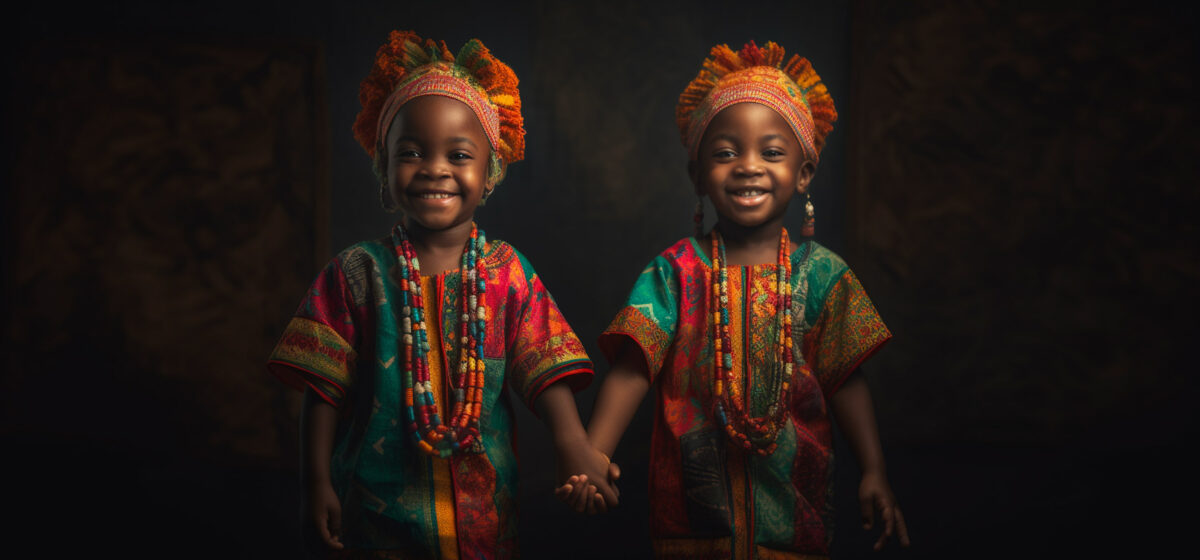
Ibeji, commonly known as the "Divine Twins," symbolize duality, harmony, and balance.
Ibeji
Ibeji, commonly known as the "Divine Twins," occupy a unique position in the Yoruba pantheon, symbolizing duality, harmony, and balance. As the protectors and benefactors of twins, who are considered a special blessing in Yoruba culture, they are believed to confer spiritual strength and prosperity upon their families. If one twin dies, an "ere ibeji" wooden statue is created to harbor the departed soul, maintaining the spiritual connection between the twins. This practice underscores the deep cultural emphasis on the intertwined nature of life and death that the Ibeji represent. Alternate names for them include Ibelli, Ibryi, Meji, Melli, and Jimaguas.
Ikú
Ikú is the Orisha associated with death. While many Orishas are celebrated for their connection to life, prosperity, and well-being, Ikú stands as a sobering reminder of the inevitable end that all living beings must face. Not traditionally worshipped in the same manner as deities of fertility or love, Ikú's role is more about maintaining the balance and cycle of existence, marking the transition between life and the afterlife. While the very mention of Ikú might invoke apprehension, this Orisha is not seen as evil or malevolent; rather, it serves as a force that ensures the natural order and progression of the life cycle.
Inle
Inle, also known as Erinle, is an orisha positioned at the confluence of environments, where he represents the transitional space where the fresh river water merges with the saltiness of the sea. This duality symbolizes his deep connection with both healing and health, emphasizing his role as a protector and nurturer of life. The realms he encompasses echo the harmonization of diverse elements, further cementing his significance in maintaining balance. Furthermore, his recognition within the community highlights the importance of respecting and understanding the unique balance of nature, especially in regions where freshwater and saltwater meet.
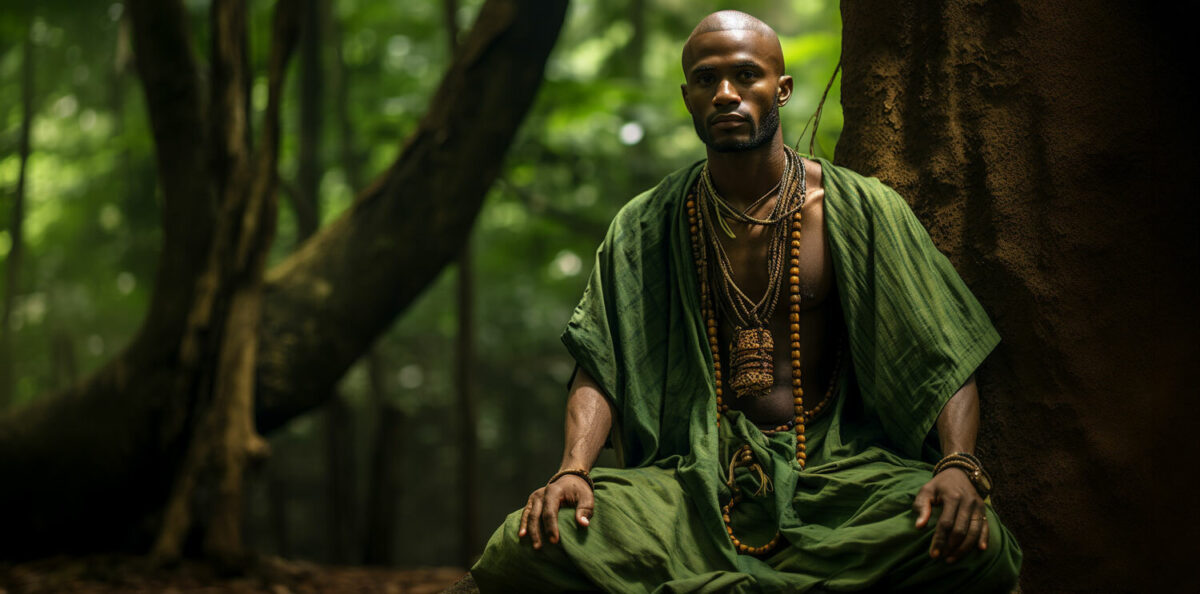
As an Orisha, Iroko represents longevity, strength, and stability.
Iroko
Iroko, often referred to as the "Orisha of the sacred tree," embodies the spiritual essence of the Iroko tree, a tall and resilient hardwood tree native to the West African region. In Yoruba tradition, the Iroko tree is considered sacred and is believed to house spirits and other supernatural entities. As an Orisha, Iroko represents longevity, strength, and stability. It is said that the spirit of Iroko can grant blessings of prosperity and protection, and as such, rituals and offerings are often made at the base of the Iroko tree to seek its favor. Within the vast pantheon of Yoruba deities, Iroko holds a unique place as a bridge between the natural and spiritual worlds.
Ìyá Nlá
Ìyá Nlá, meaning “Great Mother”, is the primordial force of wisdom, creation, and transformation in Yoruba spirituality. As the matriarch of the Ìyáàmi Òsòròngà, a powerful collective of divine mothers, she governs justice, balance, and spiritual authority. She is deeply connected to the forces of Aje, the sacred feminine energy that influences abundance, destiny, and protection.
Ìyá Nlá is often honored as a teacher and nurturer, guiding those who seek deeper spiritual wisdom. She is associated with white cloth, shea butter, sacred water, and birds, particularly owls, which are believed to be her messengers. Devotees call upon her for clarity, stability, and justice, offering white candles, jasmine flowers, and honey as tokens of reverence. Her presence reminds us that true power comes from patience, knowledge, and harmony with the universe.
Logun Ede
Logun Ede symbolizes the harmonious fusion of masculine and feminine energies. Born to the freshwater deity Oshun and the hunter-warrior Ode, Logun Ede embodies traits from both of his parents. For half the year, he adopts the traits of his mother, living within the rivers and embodying her graceful, tranquil attributes, while for the other half, he takes on the characteristics of his father, wandering the forests and embracing the assertive, hunting aspects of Ode. This duality in nature captures the balance and integration of both genders, rendering Logun Ede a significant figure in discussions about gender fluidity within Yoruba cosmology.
Naná Burukú
Naná Burukú is one of the oldest and most revered Orishas, often depicted as an ancient grandmother figure embodying wisdom, the cycle of life and death, and the deep mysteries of the waters. She is the Orisha of swamps, lakes, and healing waters, governing over transformation, ancestral spirits, and the passage between life and the afterlife. Unlike the nurturing Yemaya or the tempestuous Oya, Naná Burukú's energy is primordial and unyielding—she teaches patience, endurance, and the acceptance of life's natural cycles.
As a motherly but stern Orisha, Naná Burukú is often called upon for protection, purification, and guidance in ancestral work. She is strongly connected to the spirits of the dead and is seen as a guardian of transitions, ensuring that souls complete their journey through the realms. Offerings to her include water, purple and white flowers, and foods made from yams and corn. Devotees who work with Naná Burukú seek her wisdom for longevity, healing, and the strength to endure hardships, recognizing her as a powerful force that shapes the past, present, and future.
Oba
Oba is the Orisha of marriage, loyalty, and sacrifice, embodying the ideals of devotion and unwavering love. She is deeply connected to the themes of fidelity and perseverance in relationships. According to Yoruba legend, Oba was once one of the wives of Shango, the Orisha of thunder and lightning. In an attempt to secure his love above all others, she was tricked by Oshun into cutting off her own ear and offering it as food, leading to her rejection and heartbreak.
Despite this tragic tale, Oba is not merely a symbol of sorrow but of strength, resilience, and lessons learned through hardship. She represents the sacred duty of commitment and self-sacrifice in love, reminding devotees to value their own worth within relationships. Oba is often associated with rivers, particularly turbulent waters, reflecting the emotional depth and complexity of her story. Devotees seek her guidance in matters of love, marriage, and fidelity, offering her gifts of water, flowers, and sweet foods to honor her sacrifices and seek her protection.
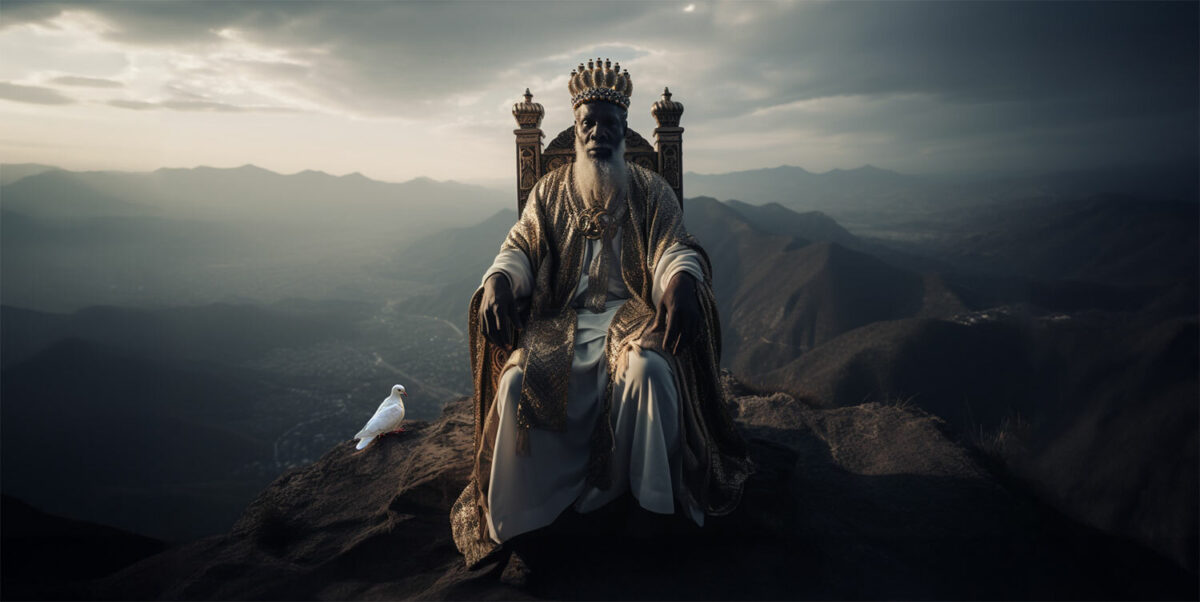
Obatala is regarded as the creator of human bodies and the sculptor of mankind.
Obatala
Obatala, often referred to as Orishanla or Oxalá in some traditions, is regarded as the creator of human bodies and the sculptor of mankind. He represents purity, wisdom, and peace, and often takes on the role of a just and merciful judge. As the father figure among the Orishas, Obatala watches over all other deities and humans, ensuring that ethical standards are upheld. According to Yoruba myth, it was Obatala who descended from the heavens with a chain, carrying a snail shell full of earth and a five-toed pigeon to create the first land mass upon the waters. Symbolized by his white garments, he embodies clarity and righteousness and is often petitioned in matters that require fairness and justice.
Ochosi
Ochosi, also spelled as "Oxóssi," "Oshosi," or "Oxossi," is the Orisha of hunting, tracking, and the wilderness. Representing the essence of precision, strategy, and justice, Ochosi is revered as the master hunter and tracker, embodying the spirit of discernment and the ability to find one's way. His attributes emphasize the importance of focus, purpose, and the utilization of resources. Ochosi is often invoked for issues related to justice, and his sight is believed to never miss its mark. As part of the "Warriors" trio alongside Ogún and Oshun, Ochosi is symbolized by the bow and arrow, and he's frequently depicted wearing the attire of a hunter, poised and vigilant in his pursuit of both game and justice.
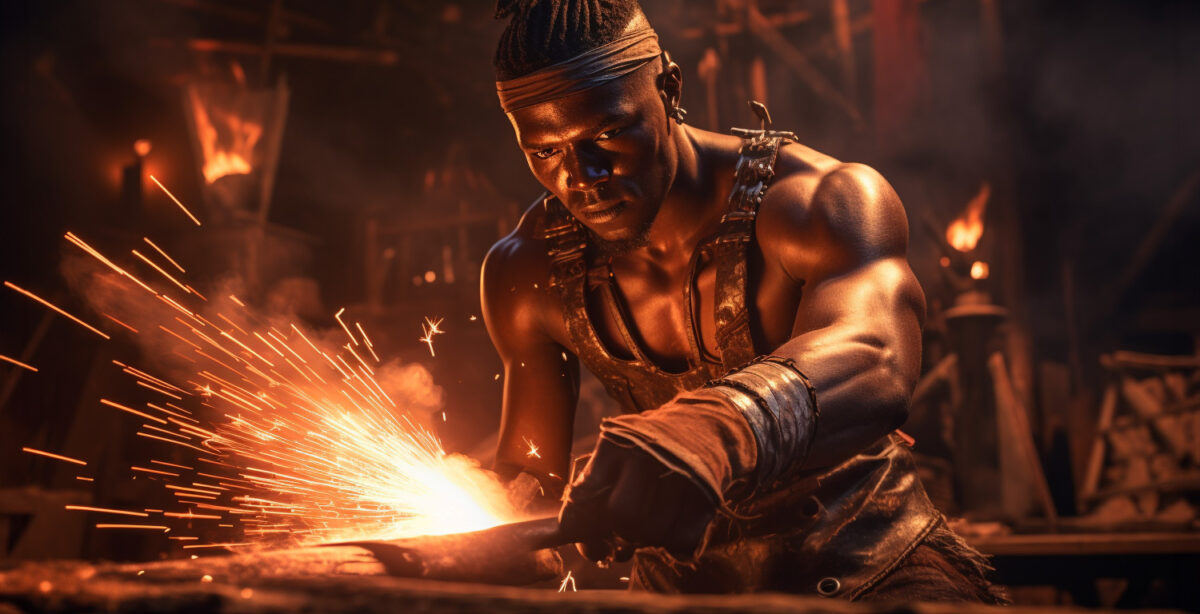
Ogun is revered for his role as the deity of iron, war, labor, and craftsmanship.
Ode
Ode, also known as Odede, is an Orisha symbolizing the depth of forests and the art of the hunt. He accentuates the virtues of patience and strategy necessary to achieve one's objectives. Often paired with Ochosi, another hunting deity, their relationship is deep, with Ode sometimes viewed as Ochosi's father, signifying a significant familial and functional connection. They are commonly invoked in ceremonies concerning justice and clarity, highlighting the correlation between a hunter's focus and seeking truth. Icons of Ode typically include hunting gear like bows and arrows, denoting his mastery over the wilderness and hunting.
Ogun
Ogun, also spelled Oggun, Ogoun, or Ogum, is revered for his role as the deity of iron, war, labor, and craftsmanship. Representing the raw energy of life, Ogun is the patron of blacksmiths, warriors, and all who use metal in their profession. He is the force that drives human civilization forward, governing tools, technology, and innovation. His nature is dualistic: he can be the provider of technology to better humanity, but he can also unleash the fury of war. Symbolized by the machete, both a tool and a weapon, Ogun is a complex deity who balances creation with destruction. As roads and pathways are crucial for connecting communities, he is also recognized as the lord of roads, often invoked for safe travels.
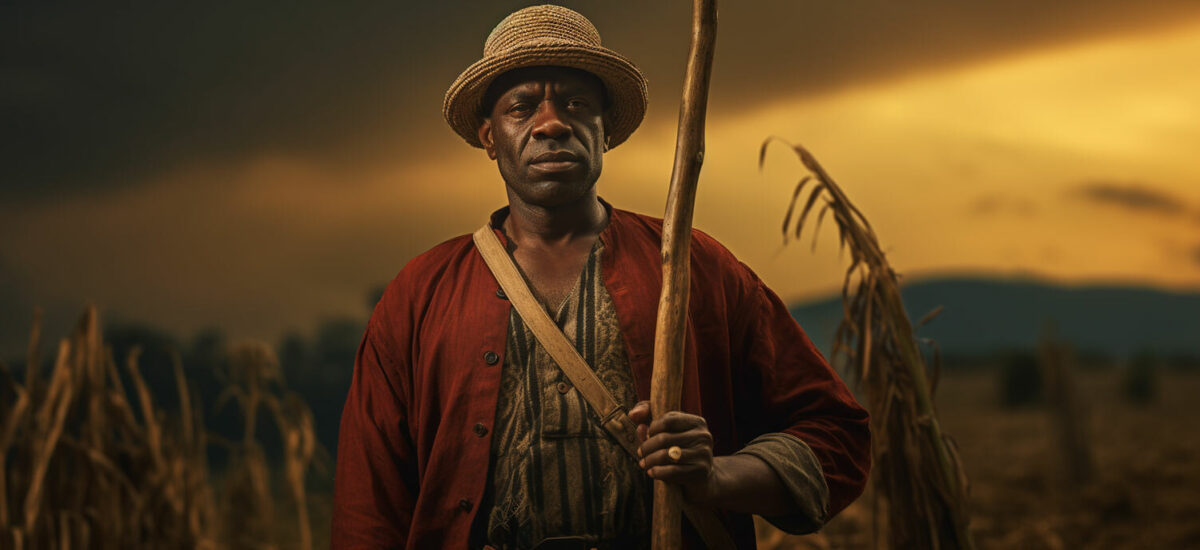
Okó embodies the sacred connection between the land and its life-giving attributes.
Okó
Okó, also known as Orisha Okó or simply Oko, is the Yoruba god responsible for agriculture, farming, and fertility. Governing the earth's fecundity, he ensures prosperous harvests and the nourishment of the populace through nature's cycles and seasons. Often depicted as a sturdy farmer immersed in his work, Okó embodies the sacred connection between the land and its life-giving attributes. In addition to his terrestrial roles, he sometimes bridges the realms of earth and sky, overseeing broader aspects of fertility. Rituals in his honor frequently feature offerings of agricultural products, celebrating the land's nurturing essence. Okó has also been depicted as a deity of law and, in certain contexts, a god of war.
Olokun
Olokun, also known as Olókun or Olookun, is a revered Orisha in Yoruba and African diasporic religions, embodying the deep, mysterious facets of the ocean. As the guardian of the ocean's dark depths, they oversee the wealth hidden beneath the waves. Their influence extends to the moon, governing tides, and reaches into the realms of dreams and the subconscious, encompassing matters of prosperity. Olokun transcends gender, representing both an all-encompassing and enigmatic force. They are a source of wisdom and the guardian of ancestral memory, often honored with offerings of water and sea elements. Their energy complements that of Yemaya, an Orisha associated with the ocean's shallower parts, forming a balanced synergy within the Orisha pantheon.
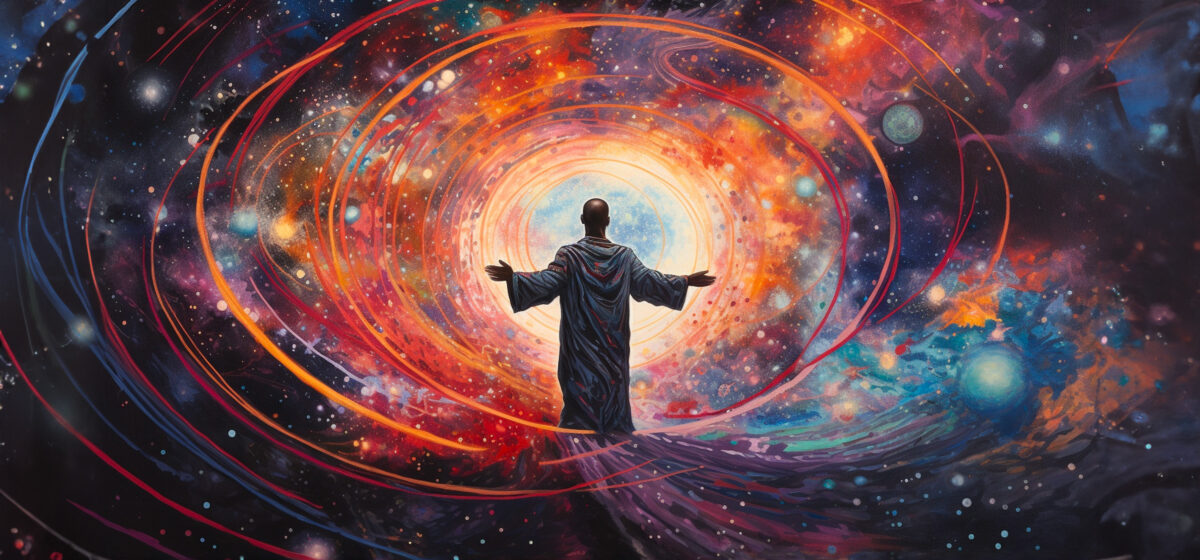
Olodumare is considered the prime source of power, responsible for creating everything, including other Orishas and the material universe.
Olodumare
Olodumare, also referred to as Olódùmarè, Olodumaré, or Olorun, is the central deity in Yoruba cosmology, representing an omnipotent and omniscient force overseeing the universe. This entity, beyond human understanding, is considered the prime source of power, responsible for creating everything, including other Orishas and the material universe. Although linked with the sky and heavens, Olodumare usually remains remote, intervening directly only during significant events. Not bound by gender, time, or space, Olodumare exists as pure energy and generally lacks a distinct physical or gendered representation. The deep respect for this deity pervades Yoruba spirituality and moral teachings, influencing societal norms and behaviors. Olodumare anchors concepts of destiny, creation, and the cycles of life and death, illustrating the interconnectedness of the physical and spiritual realms.
Onile
Onile, also known as Owner of the House, Mama Léta, and Mama La Terre, embodies the spirit of the Earth itself. She is the custodian of the Earth and is often invoked when seeking harmony and balance with the natural world. Recognized as a powerful entity overseeing land, property, and everything that the Earth enfolds, Onile is revered as the divinity of home and the grounding force connecting all living beings with the planet. She is deeply associated with the concepts of stability, foundation, and protection, ensuring that the balance of the Earth is maintained. As an Earth deity, rituals and offerings to her typically involve elements from the Earth to enhance the connection and seek her blessings. Onile's influence is perceived in the firmness of the ground beneath our feet and the nurturing embrace of the Earth, which provides sustenance and shelter to all its inhabitants.
Orula
Orula, also recognized by other names such as Orunla, Orunmila, or Ọrunmila, stands as a central figure in the Yoruba religion where he embodies the principles of wisdom and divination. He is venerated as the supreme oracle, a master of divination, holding unparalleled wisdom and insights into the future. This powerful Orisha has the unique ability to foresee the fate of every individual on Earth, wielding an extensive understanding of the unfolding narratives of humanity. Being the creator of the Ifá and the Babalawo concept, he functions as a high priest within the spiritual hierarchy, guiding adherents with his profound knowledge and prescience. Orula serves as a beacon of wisdom and a guide to the complexities of existence, navigating through the intricate web of destiny and knowledge and thereby plays a pivotal role in the spiritual and mundane affairs of those who seek his guidance.
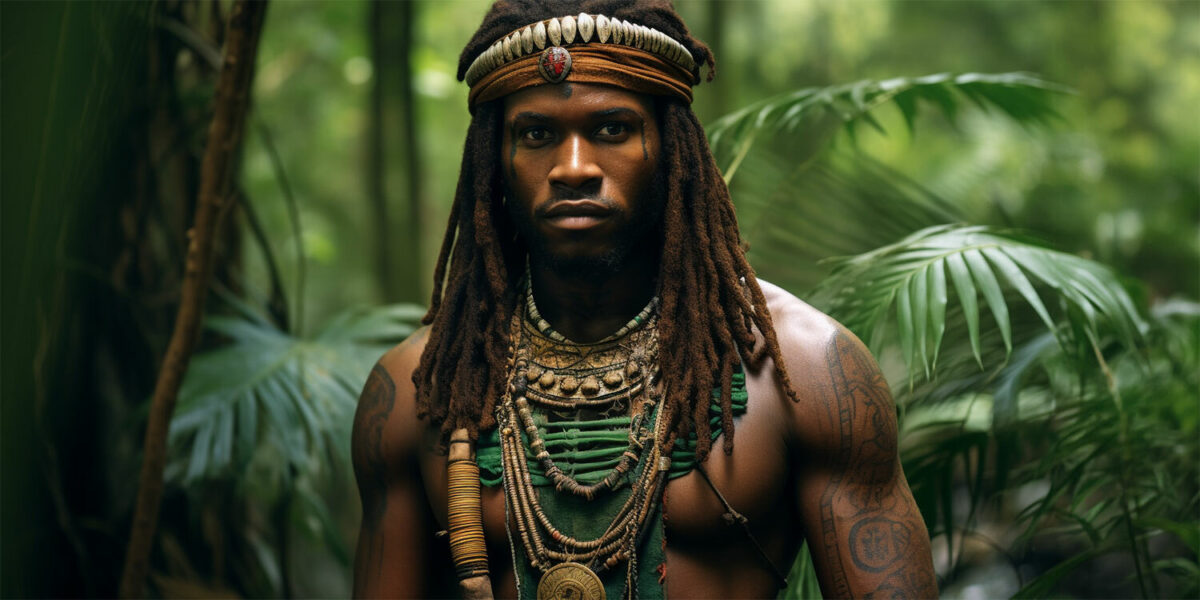
Ossain embodies the spirit that guides the preparation of medicinal remedies.
Ossain
Ossain, also known as Osain, Osanyin, and Ozain, is a significant Orisha in the Yoruba tradition, revered as the epitome of herbal knowledge. As a deity associated with the crafting and utilization of medicinal concoctions derived from leaves and herbs, Ossain embodies the spirit that guides the preparation of these medicinal remedies. Throughout his existence, he has been a beacon of knowledge and expertise in the field of natural medicine, offering insights and guidance into the healing properties of the earth's flora. His role is integral in the spiritual and physical well-being of those who adhere to the Yoruba religious practices, serving as a bridge that connects individuals to the healing energies of nature through his profound understanding of herbal medicine.
Oshun
Oshun also referred to as Ochún, Osun, and Oxum, embodies all aspects of love, beauty, and femininity. She is recognized as a spirit and a goddess who mirrors one of the manifestations of the Yoruba Supreme Being. Not just the epitome of love and beauty, Oshun is also the goddess of fertility and abundance, nurturing life's pleasures and acting as a granter of wishes. This Orisha is not only the grower of love but also a giver of life, shaping the human experiences of joy and prosperity. It is important to navigate past the stereotypical representations often associated with Oshun, as she encompasses a vast array of complex characteristics and influences, offering much more than a simplistic view of beauty and love.
Oshunmare
The Orisha Oshunmare is a vital entity within the Yoruba religion, revered as the spirit of the rainbow. Another spelling variation of their name is "Osumare," which also denotes the concept of a rainbow in the Yoruba language. Oshunmare plays a significant role in the spiritual cosmos, embodying the vibrant beauty and the connecting link that the rainbow represents in the physical world.
Otìn
Otìn holds a prominent position as a feminine deity, mirrored by her male counterpart, Ode. This dynamic duo embodies complementary virtues and qualities, each presenting a distinct gender perspective of the same attributes. Otìn, revered as a fierce huntress, consistently joins forces with Ode during various spiritual endeavors. This inseparable bond is not only spiritual but also marital, as Otìn is both Ode's twin sister and wife. This union adheres to the traditional belief that advocates for marital alliances either between twins themselves or with other pairs of twins.
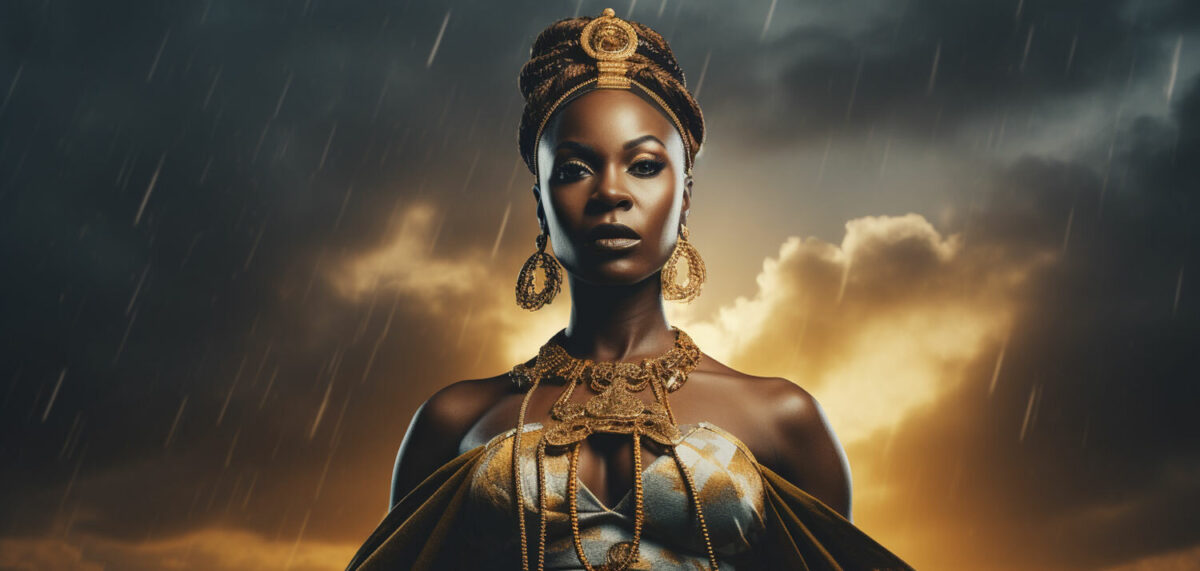
Oya embodies the forces of change, renewal, and transformation.
Oya
Orisha Oya, also known as Yansa, is a powerful and revered deity who is venerated in various African spiritual traditions including the Yoruba religion and Santeria. As a master of winds, storms, and lightning, Oya embodies the forces of change, renewal, and transformation. She has a far-reaching influence, being recognized and worshipped not only in African regions such as Benin and Nigeria but also extending her influence on Latin America. This deity holds a significant position in the pantheon, symbolizing fierce natural phenomena and embodying attributes of power and ferocity.
Shango
Shango, also known as Chango, Sango, or Xango, is a prominent figure in the Yoruba religion, revered as an Orisha of multiple facets including justice, protection, masculinity, and the forces of nature like lightning and thunder. In addition to his fierce and protective attributes, Shango is significantly associated with dance, and virility, and is known as a master of drum and dance, which perhaps symbolizes his vibrant and potent energy. Genealogically, Shango holds a royal status as he was the third ruler of the historic Oyo Empire, thereby occupying a vital place in the Yoruba lineage as a deified ancestor. His dual identity as a natural force and a deified ancestor grants him a special place in the Yoruba pantheon, where his aspects are revered through cult practices and a dedicated priesthood.
Yemaya
Yemaya, also known as Yemoja or Iemanja, is a prominent Orisha venerated as the goddess of the ocean and the nurturing mother of all living things. She embodies a protective and nurturing essence, offering care and guidance to her devotees. She holds a significant influence on women, embodying power, and beauty in equal measures. Yemaya is also known as the "Goddess of the New Year" because her waters are seen as the birthplace of all life, symbolizing new beginnings and the nurturing embrace of a mother welcoming the start of a fresh cycle. Yemaya is often depicted as a mermaid and is the patron goddess of the Ogun River in Nigeria. Her name is a contraction of the Yoruba words "Yeye" which means "Mother", "Omo" meaning "child", and "Eja" which translates to "fish". Therefore, the name "Yemaya" can be understood to mean "Mother of Fish Children" As a deity that spans various cultures, Yemaya's name and the reverence for her transcends beyond the Yoruba religion, resonating as a symbol of nurturing and fierce power of the ocean in different cultures.
The Orishas: Embracing The Divine
Through rituals, offerings, and personal reflections, practitioners establish a vibrant dialogue with this list of powerful Orishas, fostering a spirituality that is both deep and alive. This harmonious interaction inspires individuals to cultivate virtues, seek wisdom, and forge meaningful connections with the forces that govern the universe. May this glimpse into the vibrant spiritual practices serve as a beacon of understanding, showcasing the beauty and depth that arise from a life interwoven with the guidance and blessings of the Orishas. Let this knowledge kindle a spirit of respect and curiosity, encouraging a deeper exploration into the enriching world of spiritual traditions that celebrate the divine in every facet of life.

